 W
WEuropean Union law is a system of rules operating within the member states of the European Union. Since the founding of the European Coal and Steel Community following World War II, the EU has developed the aim to "promote peace, its values and the well-being of its peoples". The EU has political institutions, social and economic policies, which transcend nation states for the purpose of cooperation and human development. According to its Court of Justice the EU represents "a new legal order of international law".
 W
WDirective 2012/28/EU is a directive of the European Parliament and European Council enacted on 25 October 2012 that pertains to certain uses of orphan works.
 W
WThe European Union employs a variety of public accountability measures to review and reform budgets across government. As the EU's budget is at risk of maladministration, every year the Court of Auditors reports on the management of the budget. European Union auditors have stated that as they implement more transparency and double-entry book-keeping systems, it is likely to improve budget management.
 W
WThis is a list of current, amended, spent and repealed Acts of the Parliament of the United Kingdom relating to its former membership and current relationship to the European Communities and the European Union from 1972 onwards.
 W
WThe area of freedom, security and justice (AFSJ) is a collection of home affairs and justice policies designed to ensure security, rights and free movement within the European Union (EU). Areas covered include the harmonisation of private international law, extradition arrangements between member states, policies on internal and external border controls, common travel visa, immigration and asylum policies and police and judicial cooperation.
 W
WBrussels II Regulation (EC) No 1347/2000, which came into force on 1 March 2001, sets out a system for the allocation of jurisdiction and the reciprocal enforcement of judgments between European Union Member States and was modelled on the 1968 Brussels Convention on Jurisdiction and the Enforcement of Judgments in Civil and Commercial Matters. It was intended to regulate domains that were excluded from the Brussels Convention and Brussels I. The Brussels II Regulation deals with conflict of law issues in family law between member states; in particular those related to divorce and child custody. The Regulation seeks to facilitate free movement of divorce and related judgments between Member States.
 W
WThe Brussels Regime is a set of rules regulating which courts have jurisdiction in legal disputes of a civil or commercial nature between individuals resident in different member states of the European Union (EU) and the European Free Trade Association (EFTA). It has detailed rules assigning jurisdiction for the dispute to be heard and governs the recognition and enforcement of foreign judgments.
 W
WThe Charter of Fundamental Rights of the European Union (CFR) enshrines certain political, social, and economic rights for European Union (EU) citizens and residents into EU law. It was drafted by the European Convention and solemnly proclaimed on 7 December 2000 by the European Parliament, the Council of Ministers and the European Commission. However, its then legal status was uncertain and it did not have full legal effect until the entry into force of the Treaty of Lisbon on 1 December 2009.
 W
WCitizenship of the European Union is afforded to all citizens of European Union member states. It was formally created with the adoption of the 1992 Maastricht Treaty, at the same time as the creation of the European Union (EU). EU Citizenship is additional to, and does not replace, national citizenship. It affords EU citizens with rights, freedoms and legal protections available under EU law.
 W
WCommission v France (1997) C-265/95 is an EU law case concerning the free movement of goods in the European Union.
 W
WCommission v Italy (2003) C-14/00 is an EU law case, concerning the free movement of goods in the European Union.
 W
WThe Commissioner for Competition is the member of the European Commission responsible for competition. The current commissioner is Margrethe Vestager (ALDE).
 W
WThe Commissioner for Justice and Commissioner for Equality are posts in the European Commission. The portfolios of Justice and Equality were previously combined as Commissioner for Justice, Consumers and Gender Equality under commissioner is Věra Jourová; however, the two portfolios were split in 2019. Didier Reynders currently serves as Justice Commissioner and Helena Dalli serves as Equality Commissioner.
 W
WThe Common Veterinary Entry Document (CVED) is the official document used in all member states of the European Union (EU) to pre-notify the arrival of each consignment of live animals, live animal products and products of animal origin intended for import to or transit through the EU from third countries.The first part of the CVED contains relevant information about the consignment and is intended for the notifying part to report to the competent veterinary authority in the Border Inspection Post (BIP). The second part of the CVED shows the results of the conducted checks, and is used by the competent authority at the BIP to communicate to the notifying part the decision regarding the consignment.
 W
WA concession or concession agreement is a grant of rights, land or property by a government, local authority, corporation, individual or other legal entity.
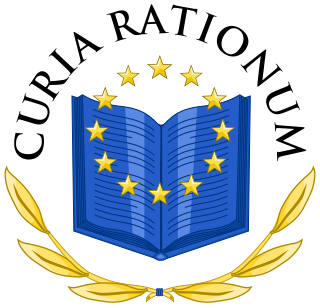 W
WThe European Court of Auditors (ECA) is one of the seven institutions of the European Union (EU). It was established in 1975 in Luxembourg in order to improve EU financial management.
 W
WThe Court of Justice of the European Union (CJEU) is the judicial branch of the European Union (EU). Seated in the Kirchberg quarter of Luxembourg City, Luxembourg, this EU institution consists of two separate courts: the Court of Justice and the General Court. From 2005 to 2016 it also contained the Civil Service Tribunal. It has a sui generis court system, meaning ’of its own kind’, and is a supranational institution.
 W
WThe Credit Institutions Directive 2013/36/EU is an EU law that aims to ensure banks are run prudently, and do not go insolvent. It was introduced as part of a package rules, following the financial crisis of 2007–2008, with the Capital Requirements Regulation 2013.
 W
WThe Dublin Regulation is a European Union (EU) law that determines which EU Member State is responsible for the examination of an application for asylum, submitted by persons seeking international protection under the Geneva Convention and the EU Qualification Directive, within the European Union. It is the cornerstone of the Dublin System, which consists of the Dublin Regulation and the EURODAC Regulation, which establishes a Europe-wide fingerprinting database for unauthorised entrants to the EU. The Dublin Regulation aims to "determine rapidly the Member State responsible [for an asylum claim]" and provides for the transfer of an asylum seeker to that Member State.
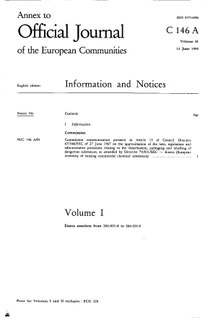 W
WThe European Community number is a unique seven-digit identifier that was assigned to substances for regulatory purposes within the European Union by the European Commission. The EC Inventory comprises three individual inventories, EINECS, ELINCS and the NLP list.
 W
WThe Immigration Regulations 2016, or EEA Regulations 2016 for short, constituted the law that implemented the right of free movement of European Economic Area (EEA) nationals and their family members in the United Kingdom. The regulations were repealed by the Immigration and Social Security Co-ordination Act 2020 on 31 December 2020, at the end of the transition period.
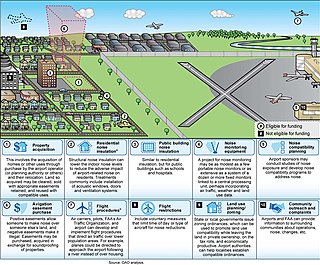 W
WEnvironmental noise is an accumulation of noise pollution that occurs outside. This noise can be caused by transport, industrial, and recreational activities.
 W
WEudraLex is the collection of rules and regulations governing medicinal products in the European Union.
 W
WEur-Lex is an official website of European Union law and other public documents of the European Union (EU), published in 24 official languages of the EU. The Official Journal (OJ) of the European Union is also published on Eur-Lex. Users can access Eur-Lex free of charge and also register for a free account, which offers extra features.
 W
WThe European Arrest Warrant (EAW) is an arrest warrant valid throughout all member states of the European Union (EU). Once issued, it requires another member state to arrest and transfer a criminal suspect or sentenced person to the issuing state so that the person can be put on trial or complete a detention period.
 W
WThe European Communities Act 1972, also known as the ECA 1972, was an Act of the Parliament of the United Kingdom which made legal provision for the accession of the United Kingdom to the three European Communities – the European Economic Community, European Atomic Energy Community (Euratom), and the European Coal and Steel Community ; the EEC and ECSC subsequently became the European Union. The Act also incorporated Community Law into the domestic law of the United Kingdom and its acquis communautaire, its treaties, regulations and directives, together with judgments of the European Court of Justice, and the Community Customs Union, the Common Agricultural Policy (CAP) and the Common Fisheries Policy (FCP).
 W
WThe European Convention was the 1999 convention which drafted the Charter of Fundamental Rights of the European Union. The convention was called in 1999 by the Cologne European Council to consolidate rights for EU citizens and enshrine them at EU level.
 W
WA European Documentation Centre (EDC) is a body designated by the European Commission to collect and disseminate publications of the European Union for the purposes of research and education. There are 400 such centers in all member states of the EU. The mandate of an EDC is to receive all official EU publications, documents, contracts and electronic databases then make them available to researchers, educators, students, and interested members of the general public. The centers are also legal depositories of Acquis communautaire. Although primarily academic in nature, anyone can visit an EDC to consult official EU publications.
 W
WThe European driving licence is a driving licence issued by the member states of the European Economic Area (EEA); all 27 EU member states and three EFTA member states; Iceland, Liechtenstein and Norway, which give shared features the various driving licence styles formerly in use. It is credit card-style with a photograph and a microchip. They were introduced to replace the 110 different plastic and paper driving licences of the 300 million drivers in the EEA. The main objective of the licence is to reduce the risk of fraud.
 W
WA European lawyer, beyond the self-evident definition of 'a lawyer in Europe', also refers to a specific definition introduced by the UK's European Communities Order 1978, which permits lawyers from other EU member states to practice law within the UK, in accordance with EU directive 77/249/EEC.
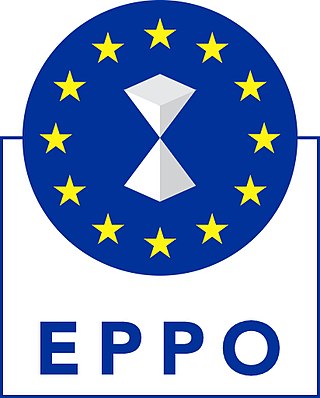 W
WThe European Public Prosecutor's Office (EPPO) is an independent body of the European Union (EU) established under the Treaty of Lisbon between 22 of the 27 states of the EU following the method of enhanced cooperation. It is based in Kirchberg, Luxembourg City alongside the Court of Justice of the European Union (CJEU) and the European Court of Auditors (ECA).
 W
WThe European Single Market, Internal Market or Common Market is a single market comprising the 27 member states of the European Union (EU) as well as – with certain exceptions – Iceland, Liechtenstein, and Norway through the Agreement on the European Economic Area, and Switzerland through bilateral treaties. The single market seeks to guarantee the free movement of goods, capital, services, and people, known collectively as the "four freedoms".
 W
WThe European Union Act 2013 is an Act of Parliament of the United Kingdom introduced to the House of Commons by William Hague. The Act made provisions consequential on the Treaty concerning the Accession of the Republic of Croatia to the European Union and on the Protocol on the concerns of the Irish people on the Treaty of Lisbon.
 W
WEuropean competition law is the competition law in use within the European Union. It promotes the maintenance of competition within the European Single Market by regulating anti-competitive conduct by companies to ensure that they do not create cartels and monopolies that would damage the interests of society.
 W
WThe European Union Customs Union (EUCU) is a customs union which consists of all the member states of the European Union (EU), Monaco, and the British Overseas Territory of Akrotiri and Dhekelia. Some detached territories of EU states do not participate in the customs union, usually as a result of their geographic separation. In addition to the EUCU, the EU is in customs unions with Andorra, San Marino and Turkey, through separate bilateral agreements.
 W
WEU Directive 92/75/EC established an energy consumption labelling scheme. The directive was implemented by several other directives thus most white goods, light bulb packaging and cars must have an EU Energy Label clearly displayed when offered for sale or rent. The energy efficiency of the appliance is rated in terms of a set of energy efficiency classes from A to G on the label, A being the most energy efficient, G the least efficient. The labels also give other useful information to the customer as they choose between various models. The information should also be given in catalogues and included by internet retailers on their websites.
 W
WFireworks policy in the European Union is aimed at harmonising and standardising the EU member states' policies on the regulation of production, transportation, sale, consumption and overall safety of fireworks across the European Union.
 W
WThe fourth railway package is a set of changes to rail transport regulation in the European Union law. It covers standards and authorisation for rolling stock; workforce skills; independent management of infrastructure; and the liberalisation of domestic passenger services in an attempt to reduce European rail subsidies.
 W
WAccording to the European Union's Internal Market in Electricity Directive from July 1, 2004, electric power consumers must be informed about the sources from which the electricity they have purchased was generated. Additionally, consumers must be informed about the amount of carbon dioxide emitted into the Earth's atmosphere and/or the quantity of nuclear waste produced as a result of the generation of the electricity that they have purchased.
 W
WThe General Court, informally known as the European General Court (EGC), is a constituent court of the Court of Justice of the European Union. It hears actions taken against the institutions of the European Union by individuals and member states, although certain matters are reserved for the European Court of Justice. Decisions of the General Court can be appealed to the Court of Justice, but only on a point of law. Prior to the coming into force of the Lisbon Treaty on 1 December 2009, it was known as the Court of First Instance.
 W
WThe Brussels I Regulation contains a jurisdictional regime: the rules which courts of European Union Member States use to determine if they have jurisdiction in cases with links to more than one country in the European Union. The basic principle is that the court in the member state of the party that gets sued has jurisdiction, while other grounds exist, which are diverse in content and scope, and are often classified in descending order of exclusivity and specificity. The original Brussels Regulation (44/2001) is, with regard to jurisdiction rules, very similar to the 2007 Lugano Convention, containing the same provisions with the same numbering. Numbering and certain substantial issues are different in the 2012 recast version of the Regulation, which has applied since 1 January 2015 (1215/2012).
 W
WKer-Optika bt v ÀNTSZ Dél-dunántúli Regionális Intézete [2010] ECR, Case C-108/09 is an EU law case concerning a conflict of law between Hungarian national legislation and European Union law. The Hungarian legislation regarding the online sale of contact lenses was considered with regards to whether it was necessary for the protection of public health, and it was concluded that this could have been done by less restrictive measures. Despite the internal measure in this case being categorised as a selling arrangement, which would generally be determined by the discrimination test established in Keck, the Court went on to use a market access test, as per Italian Trailers. Thus, this case is crucial in the recent development of the tests for determining measures equaling equivalent effect.
 W
WLegal Acts of the European Union are laws which are adopted by the Institutions of the European Union in order to exercise the powers given to them by the EU Treaties. They come in five forms: regulations, directives, decisions, recommendations and opinions.
 W
WLGBT rights in the European Union are protected under the European Union's (EU) treaties and law. Same-sex sexual activity is legal in all EU states and discrimination in employment has been banned since 2000. However EU states have different laws when it comes to any greater protection, same-sex civil union, same-sex marriage and adoption by same-sex couples.
 W
WIn 2016, following the EU Regulation 1143/2014 on Invasive Alien Species, the European Commission published a first list of 37 IAS of Union concern. The list was first updated in 2017 and comprised 49 species. Since the second update in 2019, 66 species are listed as IAS of EU concern.
 W
WThe Maintenance Regulation (EC) No 4/2009, formally the Council Regulation (EC) on jurisdiction, applicable law, recognition and enforcement of decisions and cooperation in matters relating to maintenance obligations, is a European Union Regulation on conflict of law issues regarding maintenance obligations. The regulation governs which courts have jurisdiction and which law it should apply. It further governs the recognition and enforcement of decisions. The regulation amends the Brussels Regulation, which covers jurisdiction in legal disputes of a civil or commercial nature between individuals more broadly.
 W
WThe Official Journal of the European Union is the official gazette of record for the European Union (EU). It is published every working day in all of the official languages of the member states of the EU, except generally Irish. Only legal acts published in the Official Journal are binding.
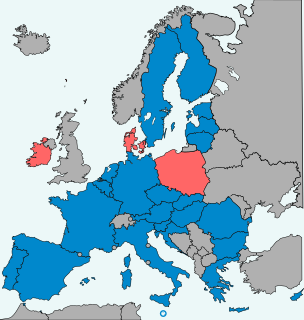 W
WIn general, the law of the European Union is valid in all of the twenty-seven European Union member states. However, occasionally member states negotiate certain opt-outs from legislation or treaties of the European Union, meaning they do not have to participate in certain policy areas. Currently, three states have such opt-outs: Denmark, Republic of Ireland and Poland. The United Kingdom had various opt-outs before leaving the Union.
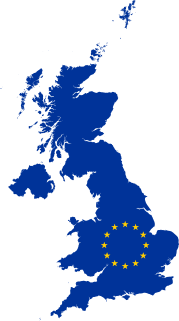 W
WThe United Kingdom was a member state of the European Union and of its predecessor the European Communities from 1973 until 2020. Since the foundation of the European Communities, it has been an important neighbour, and was a leading member state until its withdrawal from the EU on 31 January 2020 as a result of Brexit, ending 47 years of membership.
 W
WPolice and Judicial Co-operation in Criminal Matters (PJCC) was the third of the three pillars of the European Union (EU). It was named Justice and Home Affairs (JHA) before 1999. The pillar existed between 1993 and 2009, when it was absorbed into a consolidated European Union structure and became the area of freedom, security and justice.
 W
WDirective on intra-EU-transfers of defence-related products is a European Union Directive with relevance for the European Economic Area. "Transfer" in this context means "any transmission or movement of a defence-related product from a supplier to a recipient in another Member State".
 W
WR (Miller) v Secretary of State for Exiting the European Union is a United Kingdom constitutional law case decided by the United Kingdom Supreme Court on 24 January 2017, which ruled that the British Government may not initiate withdrawal from the European Union by formal notification to the Council of the European Union as prescribed by Article 50 of the Treaty on European Union without an Act of Parliament giving the government Parliament's permission to do so. Two days later, the government responded by bringing to Parliament the European Union Act 2017 for first reading in the House of Commons on 26 January 2017. The case is informally referred to as "the Miller case" or "Miller I".
 W
WA recommendation in the European Union, according to Article 288 of the [Treaty on the Functioning of the European Union], is one of two kinds of non-legal binding acts cited in the Treaty of Rome.
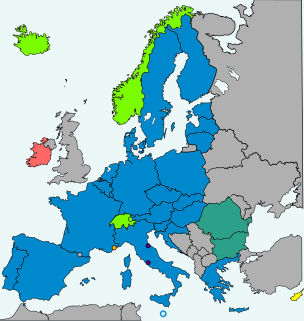 W
WThe Schengen acquis is a set of rules and legislation, integrated into European Union law, which regulate the abolition of border controls at the internal borders within the Schengen Area, as well as the strengthening of border controls at the external borders.
 W
WThe Schengen Agreement is a treaty which led to the creation of Europe's Schengen Area, in which internal border checks have largely been abolished. It was signed on 14 June 1985, near the town of Schengen, Luxembourg, by five of the ten member states of the then European Economic Community. It proposed measures intended to gradually abolish border checks at the signatories' common borders, including reduced-speed vehicle checks which allowed vehicles to cross borders without stopping, allowing residents in border areas freedom to cross borders away from fixed checkpoints, and the harmonisation of visa policies.
 W
WIt is a central tenet of the EU maritime policy that all seas have a particular nature, defined by their geography, their ecology, their economies and their people. Most seas are nested and do not, except for specific purposes such as hydrography or fisheries management, have sharp, recognised boundaries. One important sea for purposes of fisheries management is referred to as the "seas West of Scotland". In line with the EU maritime policy, the sea does not only encompass the waters but also the people and economy of the areas bordering that sea.
 W
WThe Second Railway Package is a group of European Union legislation which promote common standards and open access, working towards an integrated European railway area.
 W
WThe EU economic governance, Sixpack describes a set of European legislative measures to reform the Stability and Growth Pact and introduces greater macroeconomic surveillance, in response to the European debt crisis of 2009. These measures were bundled into a "six pack" of regulations, tabled in September 2010 as two versions respectively by the European Commission and a European Council task force. In March 2011, the ECOFIN council reached a preliminary agreement for the content of the Sixpack with the commission, and negotiations for endorsement by the European Parliament then started. Ultimately it entered into force 13 December 2011, after one year of preceding negotiations. The six regulations aim at strengthening the procedures to reduce public deficits and address macroeconomic imbalances.
 W
WThe third railway package is a collection of European Union legislation, intended to revitalise railways across Europe and open up passenger services to competition.
 W
WThe Tyre Label is a mark for motor vehicle tyres. Manufacturers of tyres for cars, light and heavy trucks must specify fuel consumption, wet grip and noise classification of every tyre sold in EU market starting in November 2012.